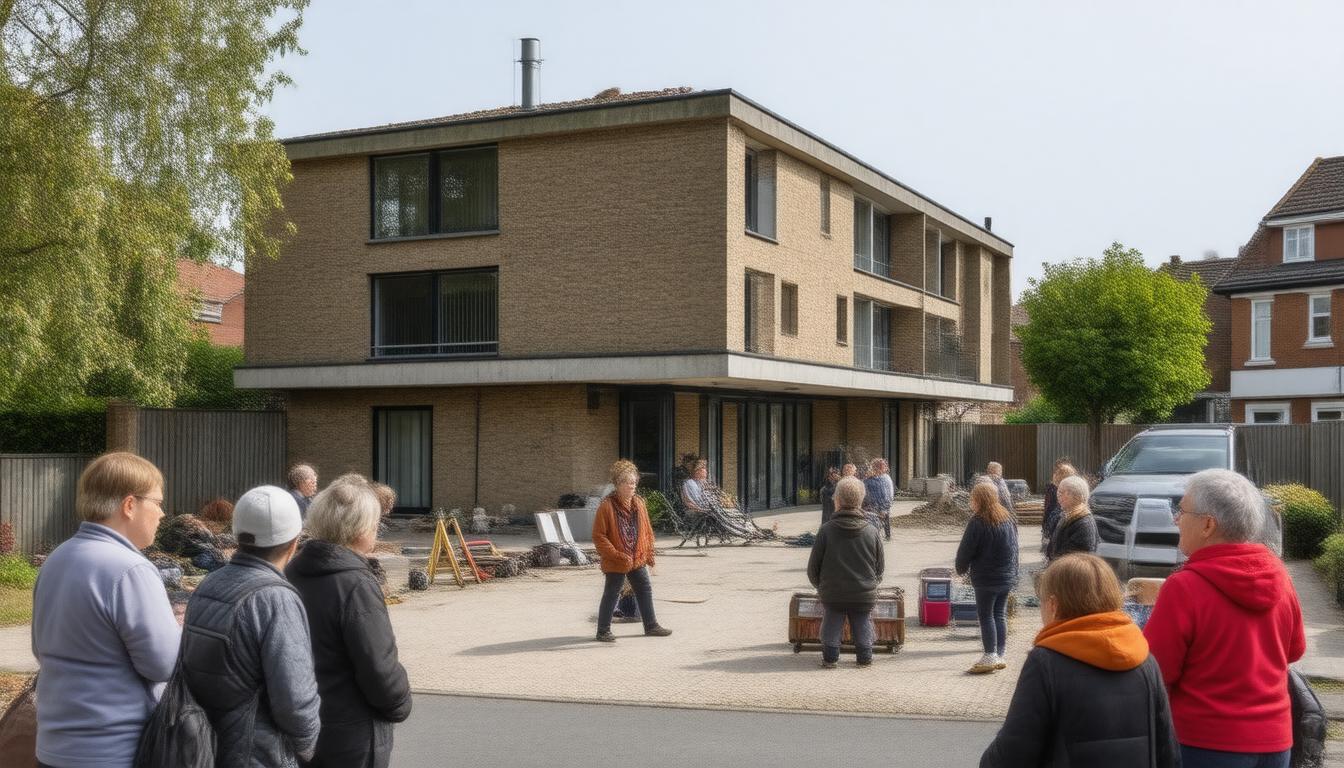In a contentious move, the Bridgend Council’s planning committee has given the green light for the conversion of a residential property on Coity Road into a house in multiple occupation (HMO), igniting concerns among local residents. The project will proceed without any external or internal alterations, transforming the property into a six-bedroom unit designed for shared living, which includes communal facilities such as kitchens and bathrooms.
Located approximately
1.3 miles from the centre of Bridgend, the site sits within a predominantly residential area. Despite unanimous approval from the council, residents raised alarms about potential noise disruptions, parking issues, and an increase in antisocial behaviour from the newcomers, fearing the loss of a family home in the process. Among the concerns voiced, one councillor insisted on the necessity to safeguard family residences within the community. Rebutting the objections, council officials stressed that the proposal would not adversely affect local amenities and would meet the burgeoning demand for sustainable housing close to the town centre. This decision aligns with another recent planning application for a larger 12-room HMO near Maesteg, indicating a trend towards accommodating more shared living spaces in the region.
Key Takeaways
- The Bridgend council approved a controversial HMO conversion despite local residents’ objections.
- Residents raised concerns about noise, parking, and antisocial behavior related to the HMO.
- Council officers emphasized the need for sustainable housing and found no adverse impact on residential amenities.
Local Residents Express Concerns
In a recent decision, the Bridgend council’s planning committee has greenlighted the conversion of a former residential property on Coity Road into a house in multiple occupation (HMO). This approval has sparked significant concern among local residents, who voiced their objections during the planning deliberations. The forthcoming HMO will feature six bedrooms, with shared amenities including a kitchen, living room, and bathroom facilities, but it is set to undergo no structural changes to the property (Wales Online, 2024). Local residents, while acknowledging the need for affordable housing, expressed fears about possible noise disturbances, parking issues, and an uptick in antisocial behaviour, as well as lamenting the loss of a family home in a community striving to maintain its residential character. One councillor underscored the importance of protecting such homes, indicating that their conversion could contribute to a decline in neighbourhood quality (Bridgend Council, 2024). Despite these concerns, council officers maintained that the proposed HMO would not negatively affect local amenities and would serve as a vital source of sustainable housing, given its proximity to Bridgend town centre, located approximately
1.3 miles away. The planning application gained unanimous approval, aligning with another related HMO proposal for a larger 12-room site near Maesteg, further indicating a trend towards increasing HMOs in the area.
Council Justifies Decision for Sustainable Housing
The Bridgend council emphasized that the conversion addresses a growing need for diverse housing solutions in the area, particularly in the wake of economic pressures that have substantially raised rental costs (Bridgend County Borough Council, 2024). By approving developments such as the HMO, the council aims not only to enhance the availability of affordable housing but also to encourage sustainable living practices within established residential zones. The decision reflects a broader commitment to align local housing policies with the Welsh Government’s goals of improving housing accessibility and sustainability across Wales (Welsh Government, 2024). Despite the apprehensions surrounding such developments, officials highlighted that carefully managed HMOs can contribute positively to the community by providing secure housing options for individuals and smaller households. The absence of structural alterations to the property was also noted as a significant factor that mitigates potential disturbances, balancing community concerns with the pressing need for adaptable living spaces.





